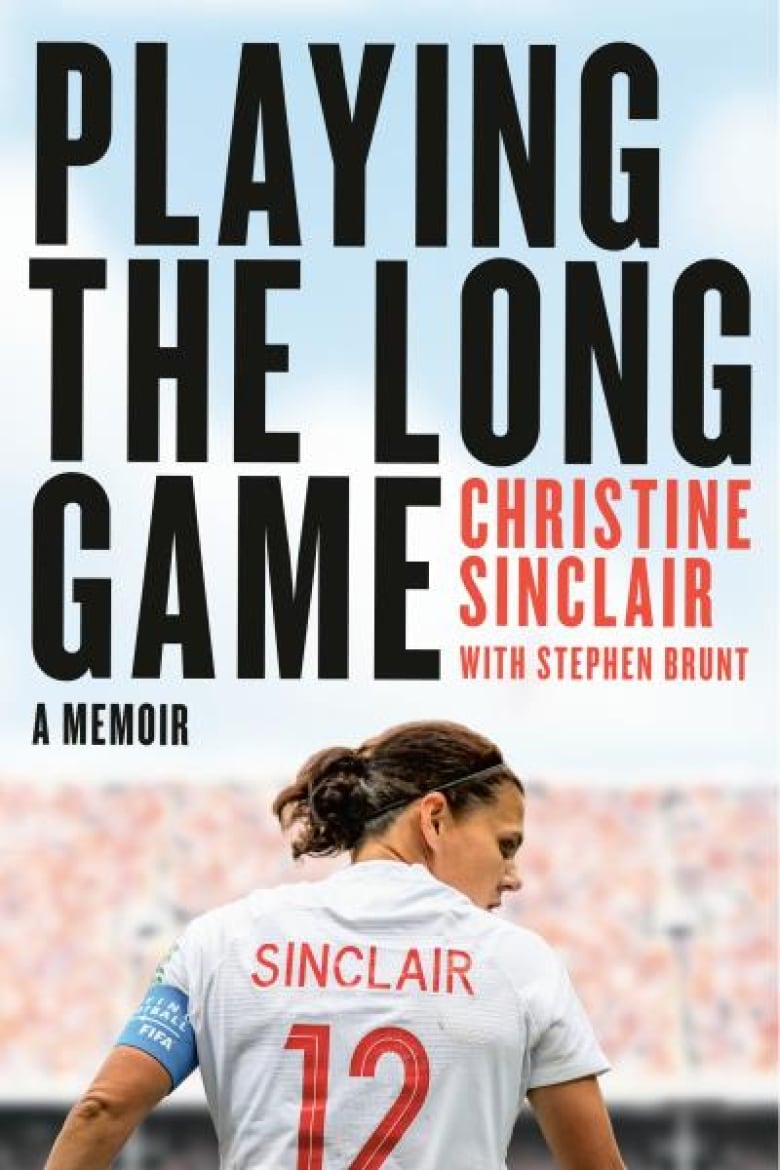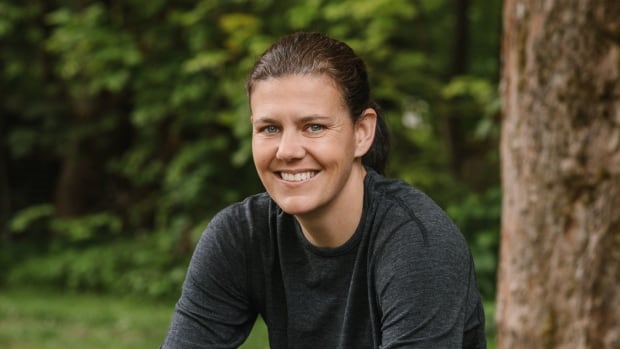
The Sunday Magazine24:30Christine Sinclair on World Cups, equal pay and valuing the journey
Soccer fans around the globe are abuzz with World Cup energy.
But one Canadian soccer superstar is watching with mixed emotions.
For women’s team captain Christine Sinclair, the journey of the men’s team highlights the inequities faced by her side.
Arguably the country’s established soccer superstars, the women’s team have played in seven straight World Cups and last summer brought home Olympic gold from the Tokyo Games.
Like many athletes, Sinclair has been speaking about the inequities between men’s and women’s sports — from the fight for equal pay to a recent report about systemic abuse in women’s soccer in the U.S.
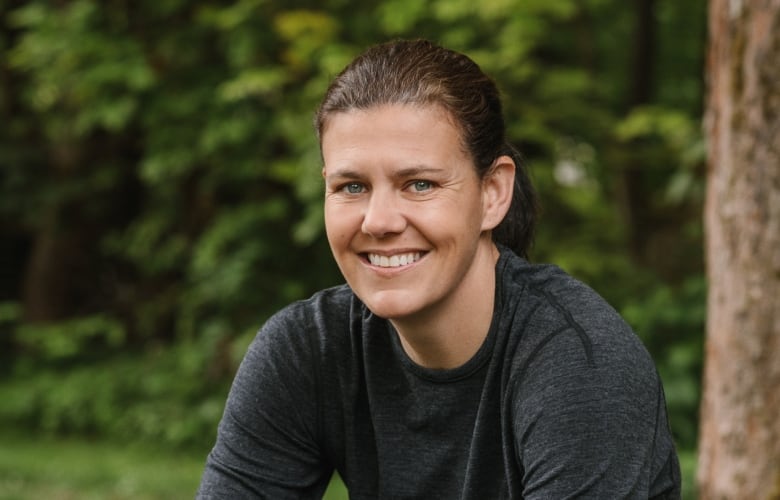
Sinclair recently spoke with The Sunday Magazine‘s Piya Chattopadhyay about her new book, Playing the Long Game, and how she — and the world — are evolving when it comes to equality in sports and beyond.
Here’s part of their conversation.
You wrote [of your gold medal win] that, “It wasn’t pretty, it was close and it was so us.” So what do you mean by that?
We fight. For as long as I can remember on the national team, we’ve been the underdogs.
Going into these major tournaments, no one expects Canada to win. And the way we won in Tokyo was not the prettiest. We’re not Barcelona; we’re never going to play like that. But what we do is we fight for each other. We defend with everything we’ve got. We leave our egos at the door — just compete.
I do want to talk about [men’s national team coach] John Herdman. You have called him “life changing.” He coached your team for seven years. The team was at a low point when he came in; last place finish in the [2011] World Cup. And then he takes you to the 2012 Olympics in London where you and your team win bronze. What is it about John Herdman?
He inherited a broken soccer team. You had half the team questioning: Why am I playing?
And within a month he had helped us rediscover our why, helped us rediscover our passion and, like, brought you back to that little kid that fell in love with the sport at the age of four.
In terms of motivation, in terms of preparation. I’ve never had the honour of playing for a better coach. Every game you go into you knew you were going to be the most prepared team.
The culture he creates — you can see it with the men now — that brotherhood, that “We will do anything for each other.” That’s him.
And then for me personally, he’s been so much more than a coach. Someone that I can constantly reach out to. He spoke at my dad’s celebration of life.
What’s it like to watch the hype and excitement around the men [going into the World Cup]?
I have mixed emotions about it. Obviously, just as a Canadian, as a soccer fan, I cannot wait to see them compete. I cannot wait to see what they’re going to achieve over there. I think they’re going to shock some people.
As a female player on the women’s national team… I’ve played in five of these, and just to see some of the things out there, like from the [Canadian Soccer Association], it’s almost like they’ve forgotten that the women have been in seven straight, which is sad.
Unfortunately it has taken the men’s team to succeed for us to even start to receive some of the things that we should have 15 years ago.
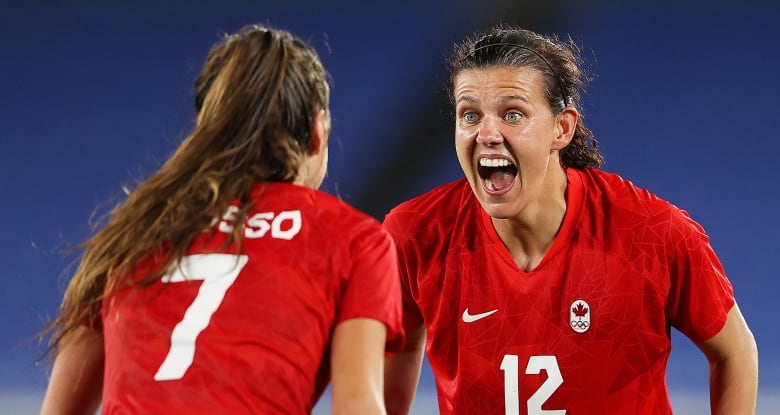
Both the men’s and the women are negotiating with CSA right now. The women’s team has said, “We’re not going to accept an agreement that doesn’t offer us equal pay with men.” The U.S. women’s team succeeded in this [in May] after their years-long fight for parity with their men’s team. What did it mean for you and your teammates to see the U.S. women score that victory?
It’s life changing. Because it is possible. I have so much respect for them and I have so much respect for what they’ve achieved and the path that they’ve set in place for all other women’s teams to follow, not just soccer.
They’ve led the charge and it’s because of them that I know that our next deal will be an equal pay deal with the men.
When you say you “know,” is that because there is no other option for you?
Yeah, there’s no other option. And the CSA knows that. The men know that. And I do give credit credit to the CSA for coming out and publicly saying that it will be an equal pay deal. But this should have happened 10 years ago. I understand it didn’t. And I understand that this is like a new era of women’s sports. It’s moving in the right direction. But it’s slow.
[A] recent investigation of the U.S. National Women’s Soccer League, which you play in, found emotional abuse and sexual misconduct were systemic in the sport… [These revelations are] happening because athletes are speaking up. It takes courage to do that. It also takes a toll on everyone, doesn’t it?
Yeah, it’s been a year, needless to say. But yeah, I have so much respect and admiration for the players that step forward.
But I want to be clear, this isn’t an NWSL problem. It’s not a Portland problem. It’s not just sports, it’s everywhere. And I hope to see something good come of this.
If the NWSL, if the Portland Thorns have to be the new standard, I hope we can be. Because it’s been unacceptable what’s happened to the women in the NWSL. But like I said, it’s in youth soccer, it’s the national teams. In Canada we’ve experienced it with Bob Birarda. And I just hope that some good can come of this where things change.
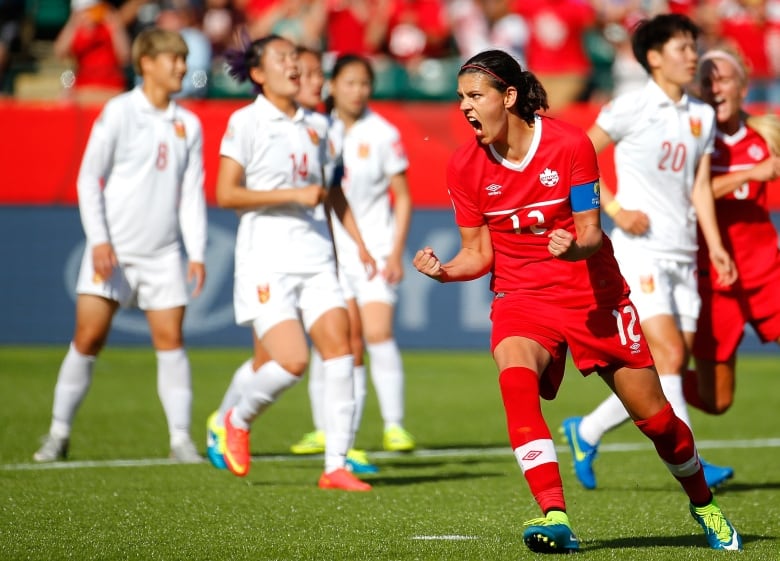
[World Cup host Qatar] has been criticized over its poor labour conditions of migrants, called out for its record on LGBTQ rights and the environment. So as someone who’s played internationally, do you think that FIFA needs to rethink awarding countries with poor human rights the right to host. And what is the role of an athlete in all of that?
Well, first and foremost, the role of the athlete for me is an easy one. I’ve played in China in the Olympics and World Cups where there were human rights concerns. And I think people need to understand that these athletes are going to compete. These athletes are potentially at a once-in-a-lifetime event to proudly represent their country and I don’t think they should be the ones focusing on all the external noise.
I think the external noise needs to be focused on, and you’re right, with FIFA. I questioned some of the decisions at times. I mean, I had a chance to go over to the World Cup and chose not to. I will obviously be supporting our men’s team. I’m supporting the sport of soccer. But yeah, there are some bigger issues that I can’t support.
What is your hope for the next generation of girls that come into the sport?
The easy answer is that it’s in a better place than when I joined the team. That the battles that myself and my teammates are having to fight won’t be battles anymore.
But here in Canada? I want to see a professional league. I think it’s unacceptable that we don’t have one. I’m concerned for the next generation if it doesn’t happen, because I see all these other countries throwing all this support and funding behind professional teams, behind their national teams. Look at your England or Spain, France, Germany. I worry that we will get passed by if we don’t create that.
Written and produced by Sarah-Joyce Battersby. Q&A has been edited for length and clarity.
